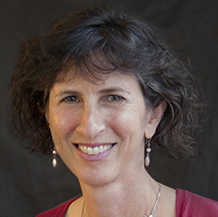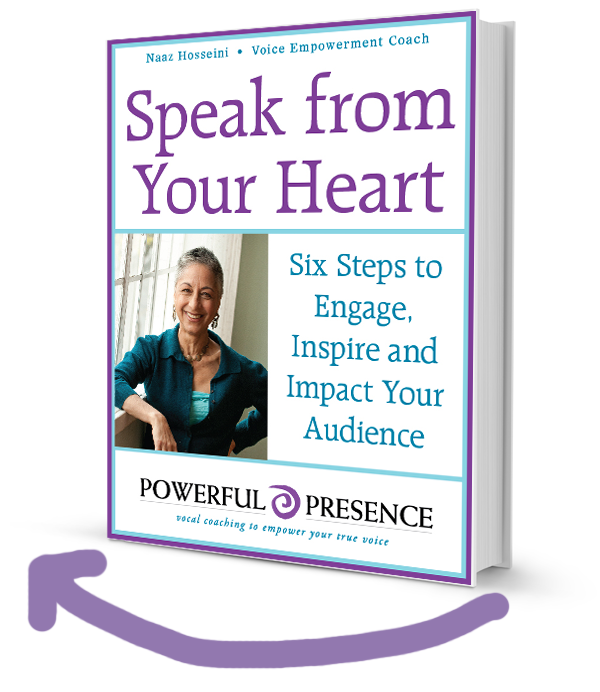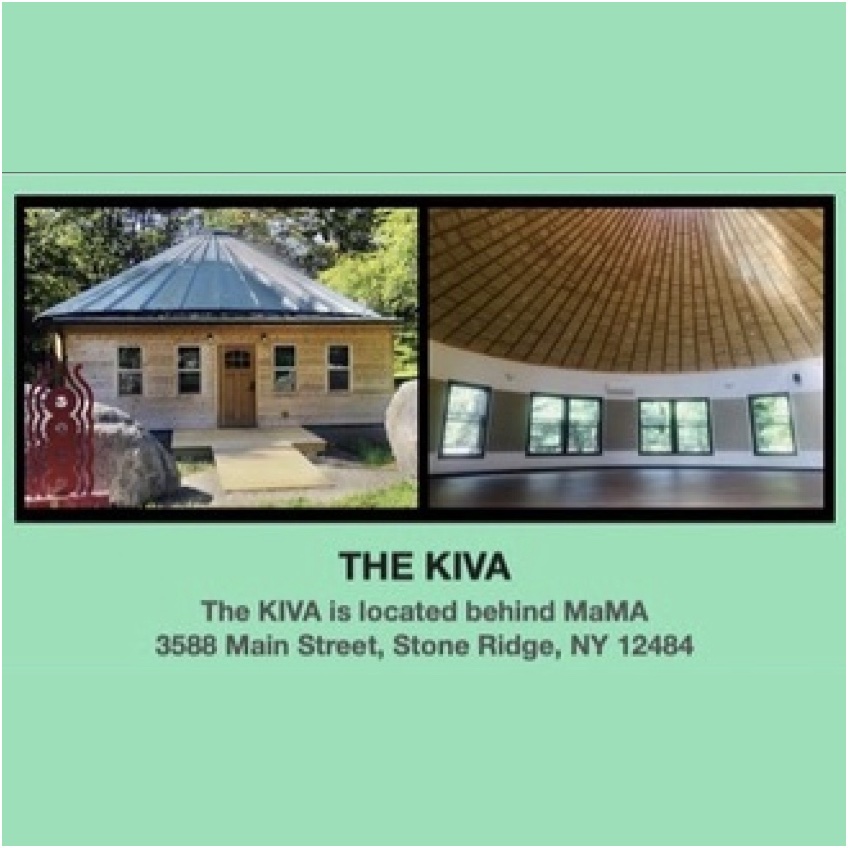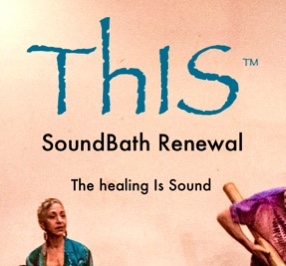Health Currents Radio: Um, Er, Uh, Like, You Know…
 I was on the phone with my friend from way back, Ellen Goldsmith, talking about my upcoming interview with her on her blog radio show, Health Currents Radio.
I was on the phone with my friend from way back, Ellen Goldsmith, talking about my upcoming interview with her on her blog radio show, Health Currents Radio.
Reflecting back on our talk, I realized something had changed in the way she spoke. She didn’t fill the silences with um’s, uh huh’s, or any other fillers.
To turn that around, she listened quietly and was focused and on point when she spoke, using lean and spare language.
What that communicated was power and confidence.
Years ago, a friend of mine, an accountant who worked for a big law firm in New York City, described the difference when he spoke to one of the firm’s partners on the phone. He said, “When I have one of the partners on the phone, there are long silences when he’s thinking. There’s no filler.” No filler to assure the listener or to comfort the speaker. No need. Just silence. And, when his thought had formed, and only then, he would express it in words. Succinctly. No filler.
If you’re a silence-filler, you might not realize you’re doing it. It’s a kind of protection against the unknown… silence. And, it communicates a lack of confidence and security. Even if you know very well what you’re talking about, fillers undermine your authority and power. They say, “I’m not sure what I’m talking about but I’m going hold on to my platform and keep searching and hopefully I’ll find what I want to say.”
Filler sounds add nothing to your message and actually dilute it and distract the listener.
The habitual “you know” has a special role in a sentence. It says, “you agree with me, right?” “We’re in cahoots, right?” “You already accept everything I’m saying, right?” “You know” is a crutch that lessens the impact of your message.
You don’t want to do that, do you?
You know.
The good news is that this is changeable.
I don’t know if my friend, Ellen, made the change in her speaking on purpose or if the change arose out of her growing accomplishments and self-confidence. Either way, the result is the same.
Powerful Presence!
If you want to grow your powerful presence, here’s one area you can take a look at. When you’re speaking, notice if you fill the spaces with nervous or apologetic sounds or utterances like “um”, “er”, “uh”, “like”, “you know”, and so on. And if you do, practice being silent instead. Tolerate the silence. It will probably be uncomfortable at first. But doing this will bring you more focus and purpose when you speak. And, will command respect.
Cultivate your powerful presence. Practice leaving silences between your words and thoughts rather than filling up the spaces.
And, share your experience, here. What is it like when you speak with fillers? Without fillers? What about when you’re listening to someone who fills all the spaces with utterances. Or someone who allows the silences. Add your comment below.
To hear more about empowering your voice and having a powerful presence, tune in to my interview on Health Currents Radio with Ellen Goldsmith. It will air on Friday, November 15 at healthcurrentsradio.com. I will be posting the link as soon as it’s available.
 Ellen Goldsmith, co-founder of Pearl Natural Health, a naturopathic, acupuncture and Chinese medicine clinic in Portland, Oregon is a recognized educator, health advocate, and practitioner in the field of Chinese medicine and integrative health care. Her podcast, Health Currents Radio was created to inspire, motivate, and connect people to resources that empower them through health. Her show, Health Currents Radio, airs over the internet on Fridays. You can find it on: healthcurrentsradio.com
Ellen Goldsmith, co-founder of Pearl Natural Health, a naturopathic, acupuncture and Chinese medicine clinic in Portland, Oregon is a recognized educator, health advocate, and practitioner in the field of Chinese medicine and integrative health care. Her podcast, Health Currents Radio was created to inspire, motivate, and connect people to resources that empower them through health. Her show, Health Currents Radio, airs over the internet on Fridays. You can find it on: healthcurrentsradio.com
© 2013 Naaz Hosseini. All Rights Reserved. Copying or reposting this content without written permission is strictly prohibited
About the Author: Naaz Hosseini
 Naaz Hosseini is a singer, dancer, psychotherapist, and voice empowerment coach. She developed Powerful Presence™ coaching to help corporate and entrepreneurial women step into their vocal power to command the attention and respect they deserve. As a NYS Licensed Psychoanalyst and Qualified Gestalt Therapist, she supervises and trains mental health counselors at Teachers College Columbia University and therapists at the Gestalt Center for Psychotherapy and Training. She served as visiting faculty at the Harvard Graduate School of Education Project Zero Summer Institute for ten years where Howard Gardner has said, "With enthusiasm, I recommend Naaz Hosseini, a pioneer in using the voice and the body for understanding."
Naaz Hosseini is a singer, dancer, psychotherapist, and voice empowerment coach. She developed Powerful Presence™ coaching to help corporate and entrepreneurial women step into their vocal power to command the attention and respect they deserve. As a NYS Licensed Psychoanalyst and Qualified Gestalt Therapist, she supervises and trains mental health counselors at Teachers College Columbia University and therapists at the Gestalt Center for Psychotherapy and Training. She served as visiting faculty at the Harvard Graduate School of Education Project Zero Summer Institute for ten years where Howard Gardner has said, "With enthusiasm, I recommend Naaz Hosseini, a pioneer in using the voice and the body for understanding." 














One of the best methods that I have come across for learning to speak without fillers is listening to a recording of yourself. You may not notice when you use filler words and sounds while speaking, but you will definitely notice when you listen (especially if you are editing the recording for use in a product or program).
My clients often host telesummits or are guests on them. One client was a guest on a summit and the host used a lot of ums and ahs… at the end of sentences, in the middle of sentences… it was the worst I’d ever heard. I told my client that I couldn’t even get through her one hour interview, it was so difficult to listen to… I was not interested in listening to any other interviews, no matter how interesting the topic.